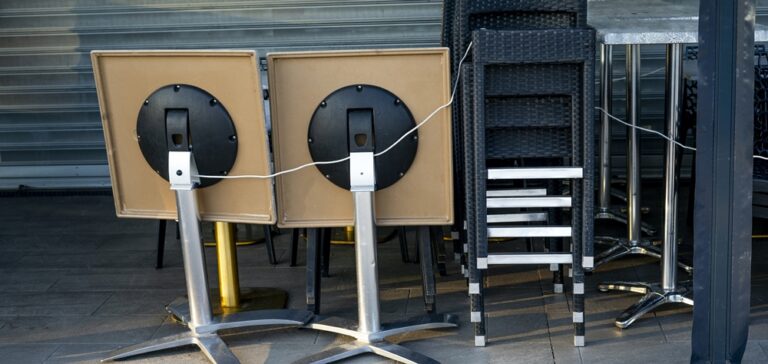Following reports that a third of hospitality businesses are now operating at a loss thanks to recent tax hikes, new research has revealed that the sector also ranks bottom for UK wages.
Besides the financial pressure on hospitality firms, UK Hospitality figures show that the sector is also experiencing significant worker shortages, with 48% more vacancies than pre-pandemic levels.
Experts warn that low pay is likely contributing to this staff exodus – the business finance experts at money.co.uk business bank accounts have analysed the latest government pay figures to reveal the industries offering the lowest hourly pay:
|
Rank |
Industry |
Median weekly paid hours |
Median gross annual pay |
Median gross pay per hour |
|
1 |
Accommodation and Food Service Activities |
26.0 |
£16,800 |
£12.39 |
|
2 |
Wholesale and Retail Trade; Repair Of Motor Vehicles and Motorcycles |
37.4 |
£25,560 |
£13.11 |
|
3 |
Arts, Entertainment and Recreation |
34.1 |
£23,786 |
£13.38 |
|
4 |
Agriculture, Forestry and Fishing |
39.0 |
£27,288 |
£13.42 |
|
5 |
Administrative and Support Service Activities |
37.0 |
£26,803 |
£13.89 |
The accommodation and food service activities sector makes up a significant part of the UK’s economy, with the hospitality sector’s annual economic contribution hitting £93 billion in 2023 and estimated to increase by another £29 billion by 2027.
Despite this, this industry’s workers have the lowest hourly pay rate. An average working week is around 26 hours long, and the average hourly pay is £12.39 – just 18 pence above the national living wage.
Businesses within the industry have faced a lot of financial hardship in recent years, with the COVID pandemic and National Insurance increases. This has made improving workers’ pay increasingly difficult while still making a profit, contributing to lower hourly rates in the sector.
Joe Phelan, money.co.uk business bank accounts expert, comments: “Our research suggests that industry pay rates could be contributing to the hospitality sector’s worker shortages, with accommodation and food service roles ranking bottom compared to other sectors for hourly pay. Combine this with the industry ranking in the top 10 for overtime, this could be why the hospitality sector is struggling to attract and retain employees.
“It’s no secret that hospitality firms have been under immense financial pressure in recent years, with COVID-19 lockdowns and rising business costs making it difficult to increase wages for employees. But pay isn’t the only way to attract and retain staff.
“In fact, a recent study found that more than a quarter (29%) of workers would be prepared to accept a lower-paid job for a better work-life balance. Prioritising healthy working conditions and minimising overtime for staff can go a long way in improving recruitment and retention efforts. Hospitality business owners can achieve this by proactively anticipating and adequately staffing for busy periods to ensure employees can take proper breaks and finish on time, even when it gets busy.”
You can view the full report, including the methodology and further data-driven insights, here.

